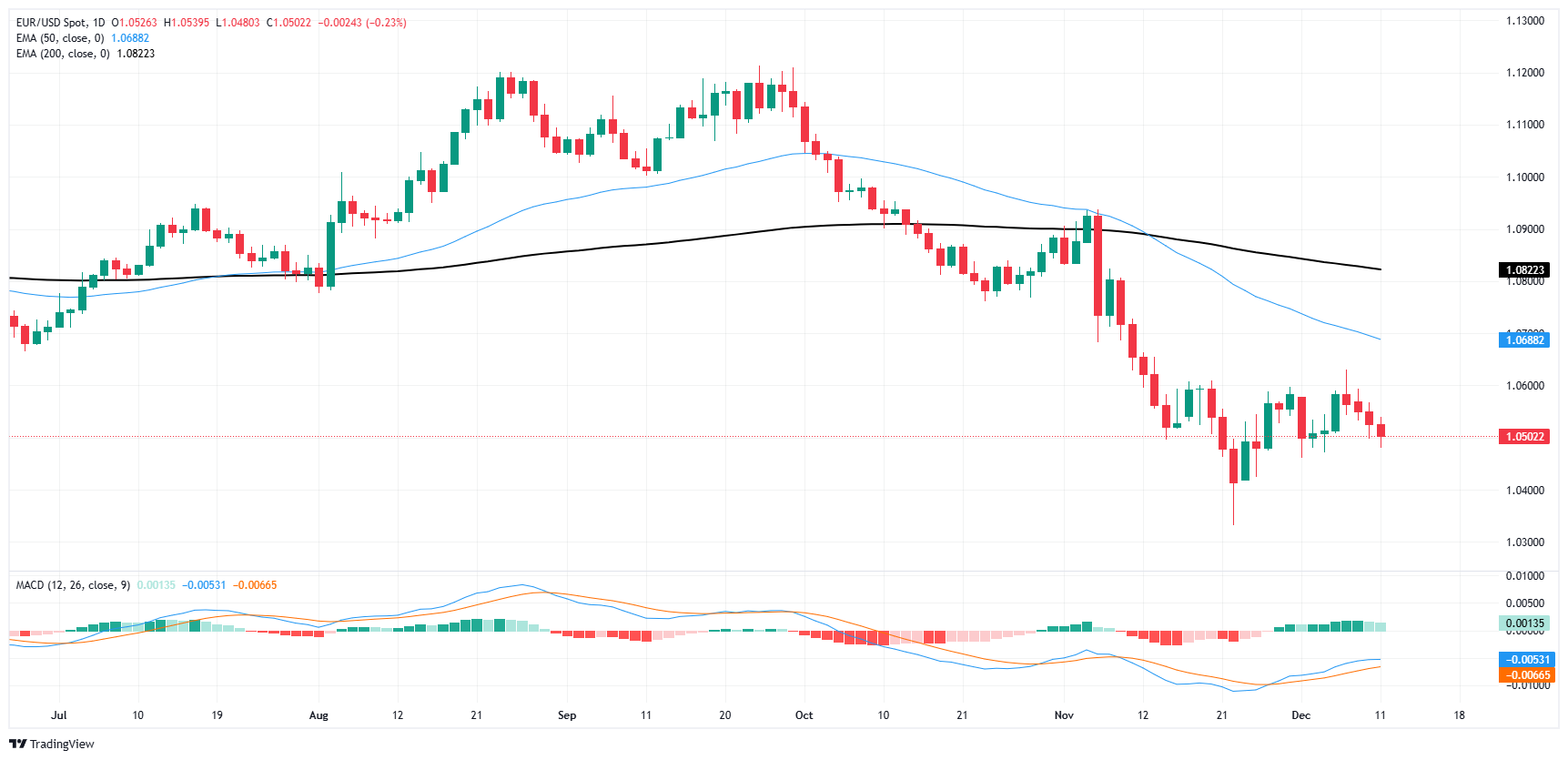EUR/USD trudges lower ahead of ECB rate call
- EUR/USD clattered into the 1.0500 handle on Wednesday.
- Despite a tepid uptick in US CPI inflation, the Greenback is trading steady.
- Euro markets are pulling back slightly ahead of the ECB’s latest rate cut.
EUR/USD fell for a fourth straight day on Wednesday, shedding one quarter of one percent and easing into the 1.0500 handle as the European Central Bank’s (ECB) latest rate call hangs over Fiber traders. US Consumer Price Index (CPI) inflation figures printed tidily at median market forecasts, keeping broader Greenback flows on-balance as investors brace for Thursday’s US Producer Price Index (PPI) print.
The ECB’s latest rate call is set for Thursday, and the rate meeting is widely expected to deliver another quarter-point cut to investors. The ECB’s Main Refinancing Operations Rate is forecast to get trimmed to 3.15% from 3.4%, while the ECB Rate on Deposit Facility is anticipated to decline to a flat 3.0% from 3.25%.
US CPI inflation rose slightly for the year ended in November with headline CPI inflation ticking up to 2.7% YoY from 2.6%, while core CPI inflation held steady at 3.3% YoY. Monthly headline CPI inflation also rose in November, climbing to 0.3% MoM from October’s 0.2%. Despite the overall upswing in main inflation figures, Wednesday’s CPI print was broadly in line with forecasts, keeping investor sentiment tepid.
According to the CME’s FedWatch Tool, rate traders are now pricing in 95% odds of a 25 bps rate cut when the Fed convenes for its last rate call on December 18. Despite the near-term uptick in CPI inflation, investors have decided that the wiggle in reported figures isn’t enough to push the Fed away from delivering one last quarter-point cut to wrap up 2024.
US PPI inflation drops on Thursday, and markets are expecting a similar showing to this week’s CPI print: producer-level inflation is expected to tick higher on the front end of the curve, but expected to remain to close to recent levels overall. Core PPI is forecast to rise to 3.2% YoY, up slightly from the previous period’s 3.1%.
EUR/USD price forecast
Fiber turned into the low side for a fourth straight trading day, declining another 0.25% and wrapping up the day close to the 1.0500 handle. EUR/USD has seen a near-term bullish recovery entirely fizzle out, and the pair is extending downside momentum after flubbing a bullish recapture of the 1.0600 handle.
EUR/USD daily chart
Euro FAQs
The Euro is the currency for the 20 European Union countries that belong to the Eurozone. It is the second most heavily traded currency in the world behind the US Dollar. In 2022, it accounted for 31% of all foreign exchange transactions, with an average daily turnover of over $2.2 trillion a day, according to data from the Bank of International Settlements. EUR/USD is the most heavily traded currency pair in the world, accounting for an estimated 30% of all transactions, followed by EUR/JPY (4%), EUR/GBP (3%) and EUR/AUD (2%).

